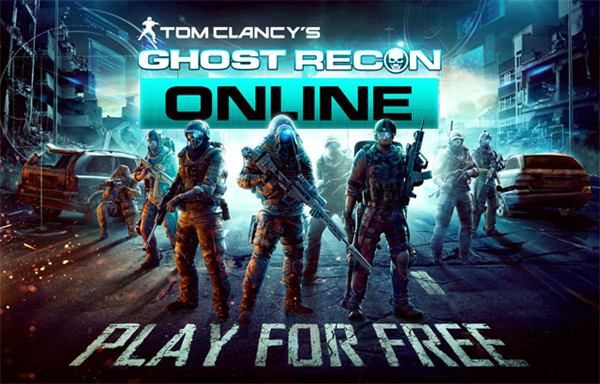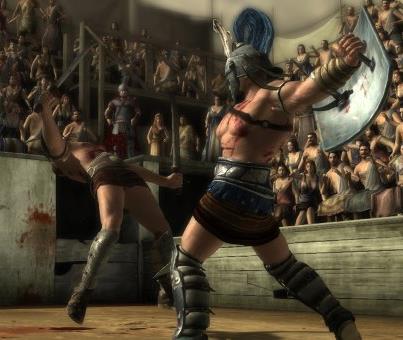Ubisoft is one of the leading publishers of AAA game titles worldwide, with franchises like Assassin’s Creed generating millions in sales. Chris Early, vice president of digital for Ubisoft, is quick to point out that Ubisoft offers games for Facebook, mobile, online, Xbox Live, PSN and more.
“Many more platforms, many more places,” Early said. “It’s an exciting time. We’ve got the first of a new round of consoles coming out, there continues to be a good mix of new hardware coming out on mobile, and the tablet side of things. What we see from our player’s perspective is they’re playing in more places than ever before. Our challenge as a creator of content is, how do we get the brands they love in front of them regardless of what they’ve got in their hands We’re on more platforms than ever before. And we’re stronger on all those platforms because that’s the way Ubisoft always is. Our job is to get our content in the hands of our players.”
This does not, however, mean that Ubisoft doesn’t care which bets turn out right. “The economist in me says it does matter, because if you guess wrong too many times you’re not going to be able to make your content come out anywhere. So far we haven’t been that far off,” Early noted.

Of course, for Ubisoft it’s not just about platform; it’s also about business models as well and Early admitted it can be hard to shift gears from retail to free-to-play. “Yeah, I think it is harder. Particularly for companies like ours that are rooted in a particular model or have a long history of it,” admitted Early. “That’s not to say we aren’t doing it well; I think we are doing it well. But it is a much more conscious effort to change the business model than it is to change platforms. Because we make creative games already; we make great entertainment experiences. Now we have to look at a new platform and figure out the characteristics of that and make it a compelling entertainment experience there.”
“The business model is like that platform change, but on steroids,” Early continued. “You have to start at the very beginning of the design cycle and design in the new business model. It’s no longer just better graphics or better control features. It compels you to do a variety of different things. You’ve bought games with a 20-minute tutorial. We were lazy as an industry and did that because we already got their money and we could make them sit through that. Not anymore! That just doesn’t fly. You don’t have a 20-minute tutorial on how to play a Facebook game.”
There are also issues making sure gamers still feel compelled to buy a FPS experience for $60 if there’s a F2P equivalent available as well. “I think it puts pressure on us to create quality content at both levels,” said Early. “We have to make Ghost Recon Online a quality piece of entertainment that you will actually pay for. I don’t think the value exchange of currency for entertainment value is wrong; that’s an OK value exchange, and I do it when I go to the movies. Sometimes when the movie is really bad, I regret that value exchange. In this model, you have to go see the movie first, then you decide what you’re going to pay, if you want to continue seeing the next episode. Or you don’t ever have to pay if you don’t want to. That’s the complication. We need to make it so that you want to pay… I think it’s going to continue that way. Models show that it works in other industries – radio, satellite radio, video, TV.”
Some think that free-to-play could be the next big revolution on consoles, and Ubisoft is going to be there on the ground floor. “I think it’s great that we’re part of the pilot program on Xbox Live to bring free-to-play games to the console. Microsoft has a pilot program coming out where there are three free-to-play games coming out on their console, and we’re the only third-party that’s doing it; two are their own studios, and then us.”
Early show a model for financial success in games regardless of price. “The interesting thing is, if you think about the value in a simple economic curve, the higher the price, the lower the quantity; the lower the price, the higher the quantity,” Early said. “Here we are at $60; it’s always this box of revenue. We don’t get anybody who’s willing to spend more, we don’t get anybody who’s willing to spend less.”
“If you assume a perfect economic system, free-to-play captures the value of the rest of that curve. The people who are willing to spend $60 will still spend $60, in a free-to-play game that’s interesting, properly constructed and designed. That way, the person who’s willing to spend $500 will also spend $500. We’ve seen that in some games. We started going down this path by adding DLC, so people can buy DLC or a season pass. We’ve been going down this way for years by price protection and price drops, and the price waterfalling system to try to take advantage of this part of the curve. The free-to-play model says ‘I can address that entire curve at the same time.'”
“This is not just an economics problem, this is a design problem. Games have to be designed that way.” Early added, making an analogy to movies and television. “I love looking at other industries for the way things work. When you look back at the movie industry in the early days of television, television had to learn how to make a much shorter version of a movie and hook you so you wanted to come back and watch it the next week. It started with serial movies, the shorts in the theaters. This is no different than that. Those producers had to make different movies, and had to focus on creating a different experience than what they had been doing before. Those that didn’t, and just tried to make a short version, failed. Those who were successful made you want to come back and see where it was going the next week. The same thing will happen in this industry too. You will have people who get it from a design standpoint, and leave you at the point where you want more, whether it be episodic, whether it be access to some other things you want to buy, or you want a faster progression to get to certain things.”
Online games also have opportunities for more dynamic promotional considerations as well. “If you look at the Ghost Recon game, you’ll notice there’s a Razr logo in a variety of places on the maps. There’s a cross-promotional opportunity going on,” Early said. “In a medium like this you have this opportunity for actual measurement of interaction with the brand. For some of our Facebook games we do this: ‘Watch the video, get some pills for Dr. House.’ At that point, it’s a service, and more people want to do that as they see the immediate benefit of yes, you’re going to expose me to your message, I’m going to learn about your product, and in return I’m going to get something I want for your game.”

Cross promotional deals between games are also more possible than ever before. “In Ghost Recon Commander, the Facebook game, when you play the game at the end of every mission you can choose some rewards,” said Early. “Your rewards are things that would normally cost you money to buy, and they help the gameplay. Or, you can choose a reward for Future Soldier – when you play Future Soldier you can use that gun. Sixty-five percent of the people who play the Facebook game choose the Future Soldier reward. That’s really good. After Future Soldier came out, we measured Uplay as the thing that connects them together. For Uplay users, the people who play Commander, eighty-three percent play Future Soldier. It absolutely worked for brand extension, for having people extend across multiple platforms. Eighty-three percent! We didn’t know it would be that good.”
“I would say it’s new marketing, or it’s a more performance-oriented marketing,” Early said. “This is what you see in some of these games with value exchanges for ads. It’s no longer an intrusion; if you’re telling me something I want to know about, or providing a service I want anyway, like ‘I want those grenades,’ I’ll watch your ad to get the grenades. That’s now a service to me, because I didn’t have to buy them. I bought them with my time. For those guys who don’t want to do that, or their time is more valuable, fine, just go buy them. Don’t spend the time watching the ad. That’s the choice that I think makes it powerful.”
Source: GamesIndustry International

